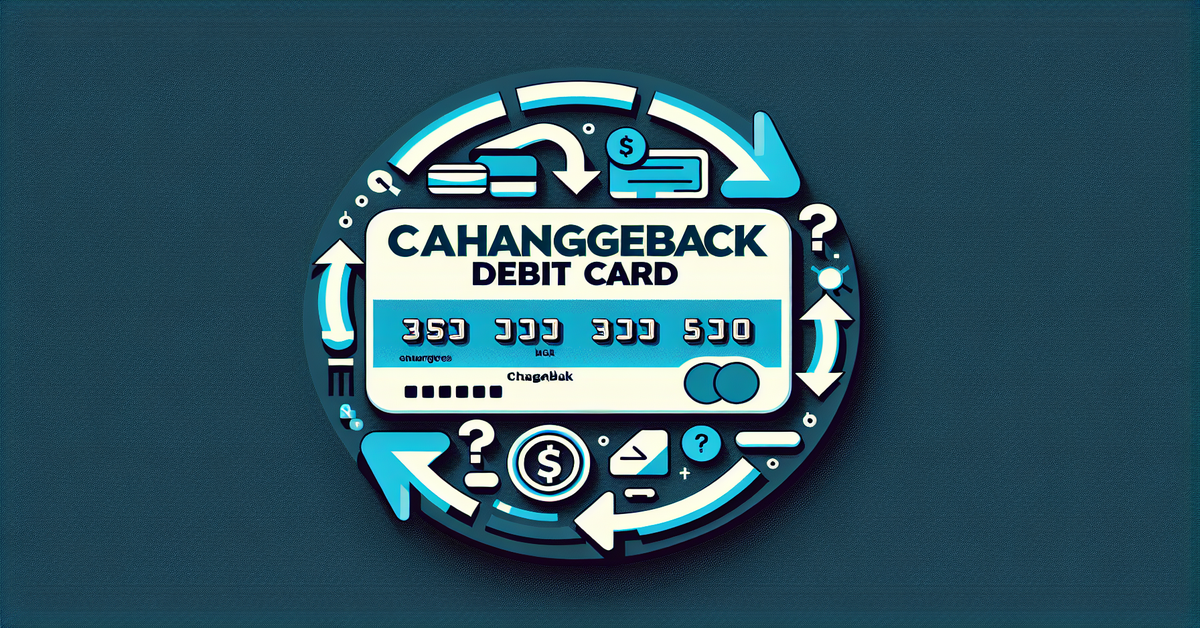Imagine you've ordered a new laptop online, but it never arrives, and your account's been debited. In situations like this, you might wonder if you can chargeback the transaction on your debit card. While it's possible under certain conditions, there are specific steps and timelines you need to be aware of. Understanding these nuances can greatly impact the outcome of your request, but what happens if your bank denies your chargeback?
Understanding Debit Card Chargebacks
A debit card chargeback occurs when you dispute a transaction, prompting your bank to reverse the charge, which can be essential for protecting your finances against unauthorized or erroneous transactions. Understanding the chargeback process is important for maintaining your financial security. When you initiate a chargeback, your bank investigates the claim, typically requiring documentation from you. Data shows that banks often favor consumers in these disputes, with studies indicating that over 50% of chargebacks are resolved in favor of the cardholder. However, not all disputes are eligible, and time frames for filing can vary. Familiarizing yourself with these nuances can empower you to act swiftly and effectively, ensuring that your financial interests are safeguarded against potential threats.
Situations That Qualify for Chargebacks
Various situations can qualify for chargebacks, including unauthorized transactions, goods or services not received, and instances of fraud, making it essential to understand the specific criteria your bank uses to evaluate claims. For example, if you notice a charge on your statement that you didn't authorize, it's vital to act quickly. Additionally, if you paid for an item that never arrived, this could also warrant a chargeback. Instances of fraud, such as identity theft or phishing scams, further justify your right to dispute a transaction. Each bank may have different guidelines, often requiring documentation to support your claim. By familiarizing yourself with these situations, you can better protect your finances and enhance your peace of mind.
How to Initiate a Chargeback
To initiate a chargeback, you'll need to follow a systematic process that typically begins with contacting your bank or card issuer to report the disputed transaction. Be prepared to provide specific details, such as the transaction date, amount, and reason for the dispute. Documentation is vital; gather any receipts, communication with the merchant, or evidence supporting your claim. Your bank may require you to fill out a chargeback request form, which outlines the nature of your dispute. It's important to adhere to your bank's guidelines and deadlines for submitting a chargeback request. Keep records of all correspondence and confirmations, as this will help guarantee your case is processed efficiently, ultimately enhancing your chances of a successful resolution.
Timeline for Chargeback Requests
Understanding the timeline for chargeback requests is essential, as it can greatly impact the outcome of your dispute. Typically, you should file your chargeback within 60 days from the transaction date, but this can vary based on your bank's policies. Once submitted, your bank usually has up to 45 days to respond to your request. If they find your claim valid, the investigation process can take an additional 30 to 90 days. During this time, it's imperative to stay informed and provide any required documentation promptly. Delays can jeopardize your chances, so keeping track of deadlines and maintaining clear communication with your bank can enhance your security during this potentially stressful process.
Tips for Successful Chargebacks
Filing a successful chargeback requires meticulous preparation and a clear grasp of the necessary documentation, so you can effectively present your case to your bank. Start by gathering all relevant evidence, including transaction records, receipts, and any correspondence with the merchant. Be sure to clearly outline the reason for the chargeback, such as unauthorized transactions or goods not received. Use data to support your claims; for instance, if the merchant has a history of complaints, mention them. Review your bank's specific chargeback policy and adhere strictly to the timelines. Finally, maintain a professional tone throughout your communication, ensuring you remain factual and concise. This structured approach will greatly enhance your chances of a successful chargeback.

